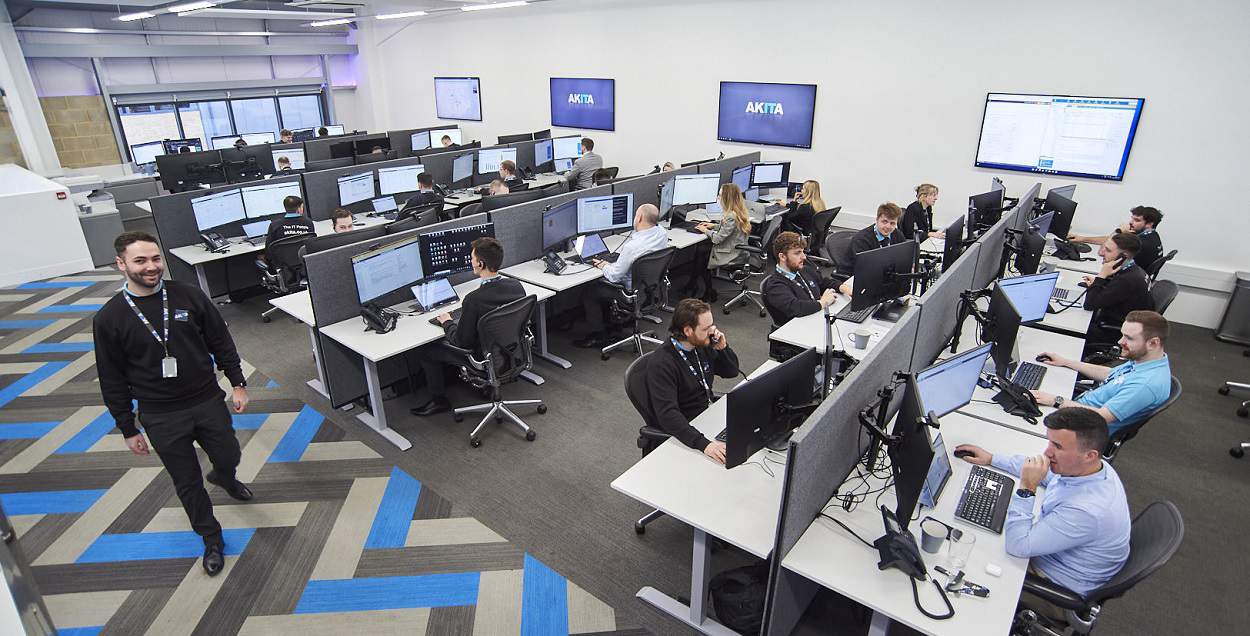When it comes to managing IT support, organisations face a critical decision: whether to handle it in-house or outsource the responsibility to a dedicated IT support provider. While there are advantages to having an in-house IT support team, it’s important to also consider the potential downsides. We explore some of the drawbacks associated with committing to in-house IT support and highlight areas to consider to help you make an informed decision.
Costly Infrastructure And Resources
Building an in-house IT support team requires significant investment in IT infrastructure, hardware, software, licensing, maintenance and ongoing training. Hiring and retaining skilled IT professionals can also be expensive, as they often demand competitive salaries and benefits. These costs can quickly add up and put a strain on yearly budgets, especially for small and medium-sized businesses.
Limited Expertise And Specialisation
IT support encompasses a broad range of areas, from network administration and cybersecurity to software development and hardware troubleshooting. It can be challenging for a smaller in-house team to have the expertise to span all of these areas. Without access to a diverse pool of specialised professionals, your team may struggle to handle complex issues or lack the necessary knowledge to implement the latest industry best practices. This limitation can hinder your ability to resolve IT problems efficiently and keep up with technological advancements.
Lack Of Scalability And Flexibility
In-house IT support is designed to meet the needs of your organisation at a particular point in time. However, as your business grows or experiences fluctuations in demand, your IT support requirements may change. Scaling an in-house team to accommodate these fluctuations can be cumbersome, time-consuming, and costly. Organisations can find themselves overstaffed during slow periods or understaffed during peak times; both affecting overall performance. In contrast, an outsourced IT support provider can offer flexible solutions and easily adjust their level of service to match your evolving needs.
Risk Of Staffing Challenges
Recruiting and retaining skilled IT professionals can be a daunting task. The IT industry is highly competitive, and talented individuals are in high demand. Building a reliable and competent in-house team requires extensive time and effort in recruiting, onboarding, and training. Additionally, if a key IT team member decides to leave or falls unwell, it can disrupt your operations and leave organisations scrambling to find a replacement. Outsourcing IT support eliminates these staffing challenges, as the provider assumes the responsibility of maintaining a qualified and stable team.
Limited Availability And 24/7 Support
IT issues can occur at any time, including outside regular working hours. With an in-house IT support team, availability can become a concern, especially during evenings, weekends, holidays, or in the case of multiple simultaneous incidents. Unless you invest in round-the-clock staffing, you may experience delays in problem resolution or face extended periods of downtime. Outsourcing IT support can provide you with dedicated 24/7 support, ensuring prompt and efficient response times, regardless of the time of day.
Potential Knowledge Gaps And Training Needs
The IT industry is constantly evolving, with new technologies, frameworks, and security threats emerging regularly. It can be challenging for an in-house team to keep up with these rapid changes while also fulfilling their daily responsibilities. Ongoing training and professional development are crucial to stay up to date. However, budget and time constraints may limit the availability of training opportunities for your in-house team. Outsourcing IT support grants you access to a team of professionals who are continuously updating their skills and knowledge to provide you with the latest expertise.
In-House IT Support vs Outsourced IT Support
While there are clear benefits to having an in-house IT support team, it’s important to be aware of the potential downsides. Consider factors such as cost, expertise, scalability, availability, and training when making your decision.
Akita has over 25 years of experience providing outsourced IT support. Find out more about how working with Akita could be a cost-effective solution for your organisation:
Find Out More




